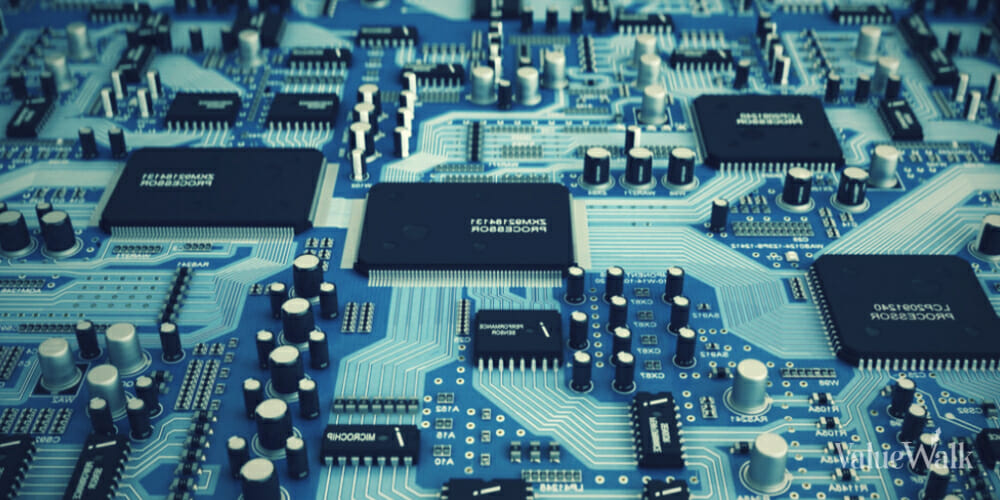Why are semiconductor stocks falling and which is better?

Semiconductor stocks have been one of the key drivers of the market for years in this digital age. But the past few years have been particularly strong, driven by the rise of artificial intelligence (AI) and growing demand for chips that can handle more complex AI-related tasks.
Global semiconductor sales in January totaled $47.6 billion, up 12.5% from the same period last year but down 2.1% from December. The market appeared to be half-accepting the news, with most semiconductor stocks falling after the figures released by the Semiconductor Industry Association on Monday afternoon.
Pessimism about semiconductor stocks grew after two major chip makers. Broadcom (NASDAQ:AVGO) and marvel technology (NASDAQ:MRVL) reported earnings on Thursday afternoon and the stock was down on Friday morning. Does this reflect a larger trend in the industry, or is it a more isolated, short-term reaction? Let’s take a closer look.
Both semiconductor companies met or exceeded earnings and revenue estimates in their most recent quarters, but both stocks tumbled Friday. Marvell is down about 9% to about $77 per share as of 1pm ET, while Broadcom is down more than 6% to $1,317 per share.
The main negative catalyst for both companies appears to be their outlook. Marvell, for example, is targeting net income of about $1.15 billion for its first fiscal quarter. That’s significantly lower than the $1.426 billion in net income it posted in the fourth quarter and less than analysts had expected.
Additionally, Marvell’s gross margin is expected to be in the range of 44.5% to 47.2%, compared to 46.6% in the fourth quarter, and adjusted earnings are estimated at 23 cents per share, significantly below the consensus of 40 cents per share. calculation.
The outlook for Broadcom has also disappointed investors, but the reasons are less clear. The company reiterated its fiscal 2024 revenue forecast of $50 billion, which is about 40% higher than the $35.8 billion in revenue it generated last fiscal year.
Key drivers are expected to be Broadcom’s AI chips, which are expected to account for $10 billion of its $50 billion in revenue, and its recent acquisition of cloud computing company VMware. In the fiscal first quarter alone, Broadcom generated $2.3 billion in revenue from AI chips. This is a four-fold increase compared to the same period last year.
The chipmaker also maintained its guidance for adjusted EBITDA of about $30 billion, up from $23.2 billion in the previous fiscal year. This represents about 60% of total sales, down from 65% last fiscal year.
“We are pleased to have secured two strong revenue growth drivers for Broadcom’s first quarter and fiscal 2024,” Broadcom President and CEO Hock Tan said in the earnings call. “First, the VMware acquisition is accelerating revenue growth in our Infrastructure Software segment as customers deploy VMware Cloud Foundation. Second, strong demand for networking products from AI data centers and custom AI accelerators from hyperscalers is driving growth in the semiconductor segment.”
Selling isn’t necessarily a bad thing
The market seems to be overreacting to Broadcom, especially today. Marvell’s results and prospects are a bit more worrying. This is because revenue growth comes entirely from the AI segment, while other businesses are struggling to generate revenue.
But selling off may not be an entirely bad thing. This is especially true for Broadcom, which looks like the better stock of the two companies. That’s because Broadcom’s stock has become more expensive, rising 104% in 2023 and 21% this year, including Friday’s decline. The price-to-earnings ratio rose to 42 from about 21 a year ago, and the forward P/E jumped to 30 from 18 in November.
Broadcom stock is expected to cool off a bit, so this could be a reaction to its rising valuation. The company still has great earnings power, so it’s definitely one to own. For those looking to buy, it may be a wait and see time to see how things settle down.
disclaimer: All investments involve risk. Under no circumstances should this article be taken as investment advice or constitute liability for investment profits or losses. The information in this report should not be relied upon for investment decisions. All investors should conduct their own due diligence and consult their own investment advisors when making trading decisions.



